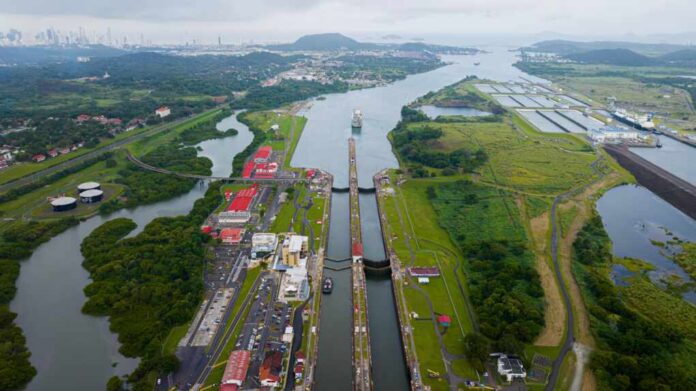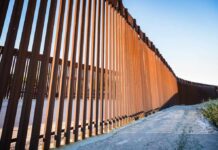
In a dramatic power play, China threatens to block the $22.8 billion Panama ports deal unless its shipping giant Cosco is given an equal stake, sparking concerns over global trade control.
At a Glance
- China demands Cosco’s inclusion in the Panama ports deal.
- The deal involves the sale of 43 ports across 23 countries.
- The exclusivity period for BlackRock and MSC ends July 27, 2025.
- U.S.-China tensions heighten over control of strategic infrastructure.
China’s Ultimatum on Panama Ports Deal
As the deadline approaches for the $22.8 billion sale of CK Hutchison’s port assets, China has issued a stark warning: include its state-owned Cosco as an equal partner, or the deal is off. This move reignites tensions over control of critical infrastructure, particularly near the Panama Canal, a key global trade chokepoint. The consortium led by U.S. asset manager BlackRock and Mediterranean Shipping Company (MSC) finds itself in a precarious position, navigating complex geopolitical waters.
China threatens to squash Panama ports deal unless its shipping giant gets an equal stake: report https://t.co/ih0EJuZ9hJ pic.twitter.com/Gsq3IZKxHB
— New York Post (@nypost) July 17, 2025
The urgency is palpable as the July 27 exclusivity period deadline looms. While all parties are reportedly open to including Cosco, no agreement has been reached. The Chinese government’s hardline stance, instructing state-owned companies to freeze deals with CK Hutchison unless Cosco is included, underscores the high stakes involved. This strategic maneuver aligns with Beijing’s broader goal of securing influence over global trade routes.
Watch: China responds to report about Beijing pushing its Cosco to be part of Panama Ports Deal
Historical Context and Power Dynamics
This isn’t China’s first rodeo in using its regulatory muscle to shape global trade dynamics. Back in 2014, Beijing blocked a major shipping alliance citing antitrust concerns, a move widely seen as protecting its domestic shipping industry. The Panama Canal’s geopolitical significance has long been a focal point, with former President Donald Trump emphasizing its strategic importance for U.S. national security. The current scenario reflects a continuation of China’s strategy to assert control over key maritime infrastructure.
The key stakeholders in this unfolding drama include CK Hutchison, BlackRock, MSC, and Cosco, each with distinct motivations. CK Hutchison, controlled by Hong Kong billionaire Li Ka-shing, aims to divest its 80% stake in Hutchison Port Holdings, while BlackRock and MSC seek to expand their global reach. Meanwhile, China’s demand for Cosco’s inclusion highlights its ambition to safeguard national interests against rising U.S. influence in the region.
Implications for Global Trade and Security
Short-term uncertainties abound as the deal’s future hinges on Cosco’s involvement. BlackRock’s stock has already taken a hit amid concerns over potential Chinese intervention. The geopolitical ripple effects are significant, heightening U.S.-China tensions over critical infrastructure control. The U.S. government, under President Trump, is likely to view Chinese involvement in Panama ports as a direct threat to its strategic interests.
In the long run, the inclusion of Cosco could shift the balance of power in global shipping, cementing China’s control over vital trade routes. Such a development could diminish U.S. influence over the Panama Canal, prompting potential policy responses aimed at countering Chinese expansion. The implications extend beyond corporate boardrooms, affecting port operators, local economies, and global shippers who may face altered competitive dynamics.
Strategic Considerations and Future Outlook
Experts view this deal as a litmus test for China’s readiness to wield regulatory power in securing strategic assets abroad. The inclusion of Cosco is perceived as a non-negotiable prerequisite for Chinese approval, underscoring Beijing’s commitment to controlling global supply chains. This intervention resonates with China’s broader economic statecraft, where commercial deals serve as instruments for advancing geopolitical goals.
As the clock ticks down to the July 27 deadline, the world watches closely. The outcome of this high-stakes negotiation will have lasting implications for global shipping, trade security, and the interplay between commerce and national security. The Panama ports deal is more than a business transaction; it’s a pivotal moment in the ongoing struggle for control over the arteries of global trade.

























